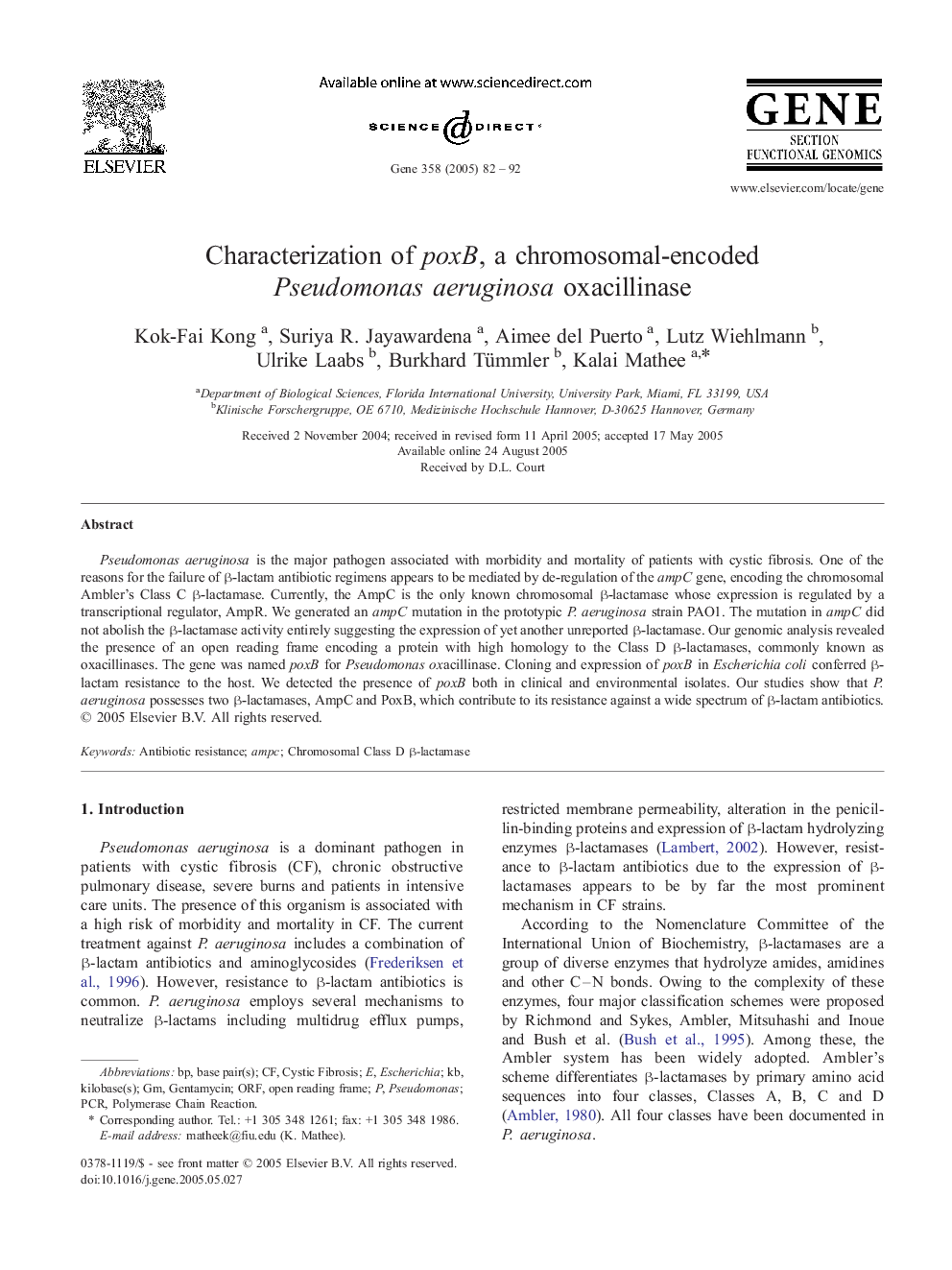| Article ID | Journal | Published Year | Pages | File Type |
|---|---|---|---|---|
| 9126972 | Gene | 2005 | 11 Pages |
Abstract
Pseudomonas aeruginosa is the major pathogen associated with morbidity and mortality of patients with cystic fibrosis. One of the reasons for the failure of β-lactam antibiotic regimens appears to be mediated by de-regulation of the ampC gene, encoding the chromosomal Ambler's Class C β-lactamase. Currently, the AmpC is the only known chromosomal β-lactamase whose expression is regulated by a transcriptional regulator, AmpR. We generated an ampC mutation in the prototypic P. aeruginosa strain PAO1. The mutation in ampC did not abolish the β-lactamase activity entirely suggesting the expression of yet another unreported β-lactamase. Our genomic analysis revealed the presence of an open reading frame encoding a protein with high homology to the Class D β-lactamases, commonly known as oxacillinases. The gene was named poxB for Pseudomonas oxacillinase. Cloning and expression of poxB in Escherichia coli conferred β-lactam resistance to the host. We detected the presence of poxB both in clinical and environmental isolates. Our studies show that P. aeruginosa possesses two β-lactamases, AmpC and PoxB, which contribute to its resistance against a wide spectrum of β-lactam antibiotics.
Keywords
Related Topics
Life Sciences
Biochemistry, Genetics and Molecular Biology
Genetics
Authors
Kok-Fai Kong, Suriya R. Jayawardena, Aimee del Puerto, Lutz Wiehlmann, Ulrike Laabs, Burkhard Tümmler, Kalai Mathee,
